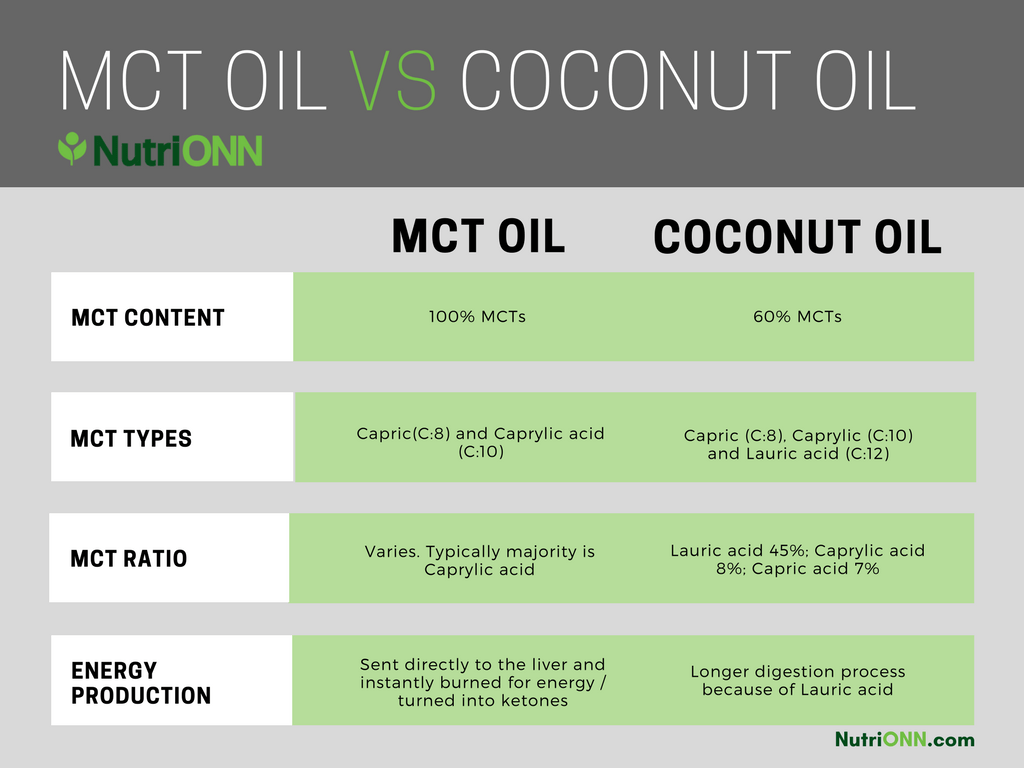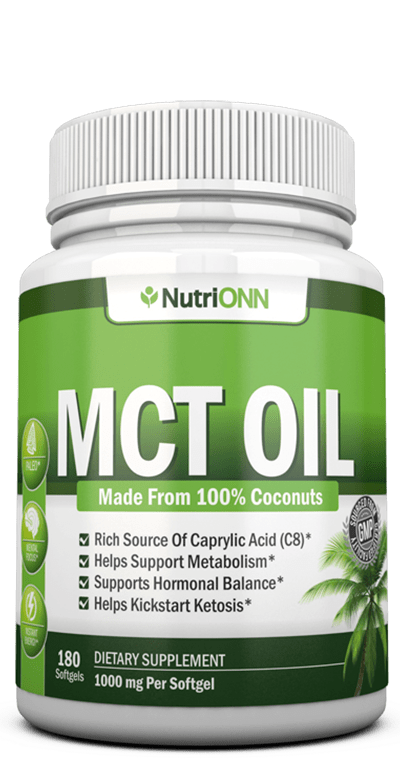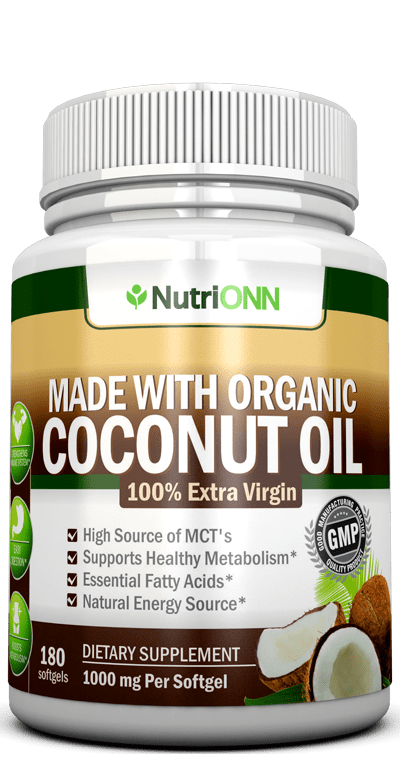For the last decade, probably most of us have heard about the magical elixir called coconut oil and how you should consume it every single day to be healthy and happy.
However, recently another oil has been making its name on the market – MCT oil. Fun part about it is that coconut oil is most commonly known for its high MCT content and what health benefits MCT’s provide.
Both of these have been praised as the holy grail of supplements, but what exactly is the difference between MCT oil and coconut oil? Let’s find out!
What is Coconut Oil?
Coconut oil is an edible oil extracted from the meat of mature coconuts. These coconuts are harvested from the Cocos nucifera tree, also know as coconut palm tree.
Coconut oil is used for various purposes. Mainly in cooking – in baked goods, for frying, pastries, snacks and much more. Coconut oil is also used in hair and skin care because of its protecting and moisturizing properties.
Unrefined extra virgin coconut oil (that’s the good stuff) has a strong coconut smell and flavor. When coconut oil is stored below 76 °F, it is solid and white. When stored above 76 °F, coconut oil melts into a transparent liquid.
What is MCT Oil?
MCT’s aka Medium Chain Triglycerides aka Medium Chain Fatty Acids are naturally found in coconut oil. MCT oil is usually extracted from coconuts, but it can also be sourced from palm oil (PS! For the sake of rainforests, we always recommend using MCT oil sourced from preferably organic coconuts). This makes MCT oil a concentrated form of some of the beneficial fatty acids found in coconut oil.
Coconut oil’s MCT content is approximately 60%, making coconut oil a great source of these valuable fatty acids. However, the MCT content in MCT oil is usually 99-100%. That 100% is made up of capric acid (C:8) and caprylic acid (C:10) where usually the majority is caprylic acid. MCT’s are easily metabolized for energy production and don’t need to go through the digestive tract. This also means that MCT’s are less likely to be stored as fat.
Table: MCT Oil vs Coconut Oil

Why Take MCT Oil?

MCT’s are more easily and rapidly digested than any other type of fat! Therefore, you’ll gain immediate fuel for energy. MCT fatty acids don’t go through the regular metabolization process in your digestive system. Instead, they are directly sent to your liver where they are instantly burned for energy. This makes MCT oil an excellent way to fuel your body fast and naturally.
Since MCT’s are easily absorbed and sent directly to you liver, they’ll give you a shot of stable energy and have the ability to speed up your metabolism. Once MCT’s are in your liver, they’ll possess a thermogenic effect and won’t be stored as fat.
When taking MCT Oil, you’ll surely notice all the new energy you’ve gained and might notice your body composition changing as well (to the better of course!). When MCT’s have been processed by your liver and converted into energy, your body starts releasing ketones. You’ll get into nutritional ketosis and your body starts burning fat for fuel (rather than using glycogen).
Caprylic acid in MCT oil helps maintain a healthy gut. Not only has MCT oil antibacterial properties, but it gives your digestive system a little break, because the oil is being processed in your liver instead. Additionally, MCT’s are widely prescribed to people who suffer from malabsorption issues where their bodies won’t absorb essential nutrients properly.
Click HERE to buy MCT Oil Softgels
Why Take Coconut Oil?

MCT content in coconut oil is approximately 60%. Coconut oil consists roughly of 45% lauric acid, 8% caprylic acid and 7% capric acid. It’s important to keep in mind that although lauric acid is also considered as an MCT, it is being metabolized more like a long-chain fatty acid. For this reason, lauric acid goes through a longer digestion process and might be stored as fat when consumed too much.
Coconut oil has amazing antibacterial and antifungal properties. Lauric acid gives coconut oil significant immune system boosting abilities to support overall health and wellbeing. Give coconut oil a go if you want to prevent common colds and viruses, or even help relieve them!
Lauric acid, which isn’t usually found in MCT oils rather than coconut oil, has many great health benefits. Lauric acid promotes good cardiovascular health by supporting healthy cholesterol levels and blood pressure. In addition, caprylic and lauric acids in coconut oil can reduce inflammation and moisturize your skin and hair – both externally and internally.
Click HERE to buy Organic Coconut Oil Supplement.
Conclusion
Although coconut oil and MCT oil may seem to have many fairly similar health benefits, they are actually different and can be used for various reasons. Now that we’ve covered all the main differences between MCT and coconut oil, let us know – which one do you prefer?





0 Comments
Trackbacks/Pingbacks